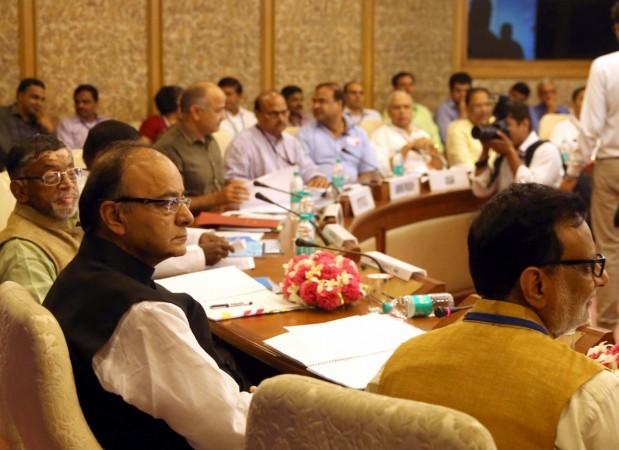
The Goods and Services Tax (GST) Council that met on Thursday and Friday cleared the draft Central GST (CGST) and State GST (SGST), in addition to fixing the rate of compensation to states for the first five years of GST implementation, on the positive side. However, the April 1, 2017 rollout looks difficult since the Interstate GST (IGST) and the issue of dual control by the Centre and state governments over tax payers remains unresolved.
The two issues are scheduled to be taken up when the GST Council — the apex decision-making body -- meets on January 3 and 4, the finance minister said in New Delhi on Friday. The minister posted a series of tweets on the two-day GST Council.
The IGST relates to movement of goods between states, while dual control deals with division of powers between the Centre and the states regarding assessment.
Currently, the states are firm in their demand that indirect tax payers up to annual turnover of Rs 1.5 crore should be under their control.
The decision to demonetise high-value currencies and the consequent disruption to business activity in the country has irked many states who feel that the timing of the GST implementation in April 1 would worsen difficulties for the economy. Kerala and West Bengal have been vocal on this issue.
Next steps
The Centre will have to get the CGST approved by the Parliament when it meets for the budget session, while states will have to undertake a similar exercise with regard to the SGST.
However, with states up in arms over Prime Minister Narendra Modi's demonetisation issue and the resultant political and economic uncertainty likely to stay for some more months, non-BJP state governments would prefer to go slow over sticking to the April 1, 2017 deadline.
Finance Minister @arunjaitley : Primary draft of CGST and SGST law has been approved by GST Council today
— Ministry of Finance (@FinMinIndia) December 23, 2016
FM @arunjaitley : States will be compensated 100 % of the loss which is directly attributable to GST implementation for a period of 5 years
— Ministry of Finance (@FinMinIndia) December 23, 2016
FM @arunjaitley : Issues of IGST and Dual Empowerment will be taken up in next GST meeting on 3rd and 4th January
— Ministry of Finance (@FinMinIndia) December 23, 2016








